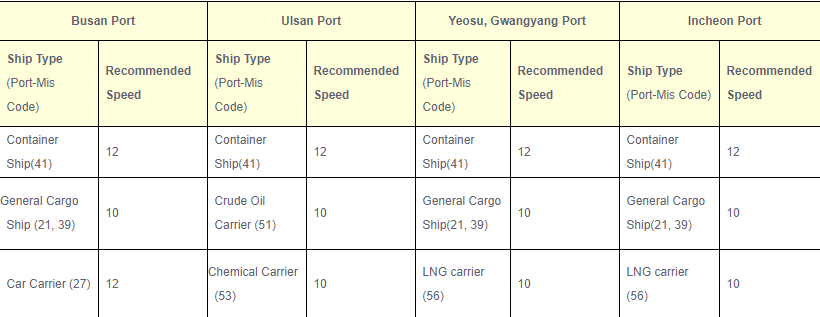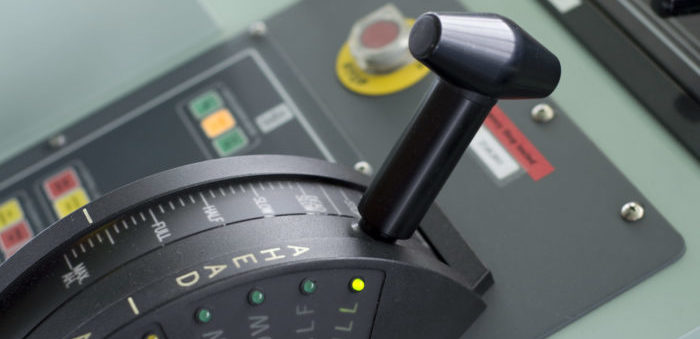South Korea’s Ministry of Oceans and Fisheries began the “Vessel Speed Reduction Program” in December 2019, in efforts to reduce fine dust from ships and protect the marine environment.
Accordingly, the Ministry informed that the program was supposed to come into force on January 2020, but began earlier in efforts to reduce fine dust levels during winter.
The newly launched program requires that ships will have their port fees lowered when they enter ports at a speed below certain levels.
The Korean Program will provide even greater incentives in order to induce more ships to participate in the program, which is important considering the seriousness of fine dust levels in ports.
The ports with the largest number of ships will first be designated as Vessel Speed Reduction Program Sea Areas; The ports are:
- Busan Port
- Ulsan Port
- Yeosu Port
- Gwangyang Port
- Incheon Port
Each Area will span 20 nautical miles in radius, measured from specific lighthouse in each port.

Also, the ships eligible for the program differ concerning the port of call. Specifically:
- As for ship-types, they have to be among the top 3 fine-dust-emitting ship-types; as for ship size, they have to be ocean-going ships that are no smaller than 3,000 tons; and any abnormal port entries do not count.
- For participating ships, port entry/leave fee (111 KRW per ton), which is the biggest part of port-facilities usage fee, will be discounted.
- Container ships, which enters port fast and can have huge effect on reducing fine dust, will enjoy up to 30% discount, while other ships will enjoy up to 15% discount.
Although in December – as an early implementation phase – participating ships received port entry/leave fee discount per each sail, from January 2020 only vessels that slow-steam for no less than 60% of all annual port entries will enjoy the discounts, in order to exclude ships that slow-steam for other arbitrary reasons and to encourage ships to participate in the program more sustainably.
The mandatory percentage will start from 60% and increase annually to 90%.
In the meantime, shipping companies with slow-steaming rate will experience additional incentives, such as:
- eco-friendly performance announcement
- award ceremony
- additional points for existing eco-friendly programs of port authorities.
Concluding, Kim Jun-Seok, Director-General of Shipping and Logistics Bureau of the Ministry of Oceans and Fisheries, commented that
Slow-steaming ships are expected to reduce fine-dust levels. According to IMO studies, when ship sails 20% slower, fuel consumption reduces by about half. We will identify and improve problems during this program-implementation period, so that this program can improve port air quality.
Similar to Korea, port of Long Beach has already enforced a speed reduction program, with more than 135 shipping lines voluntarily participating in Port of Long Beach ‘Green Flag Incentive Program’, aiming to reduce pollution.

































































